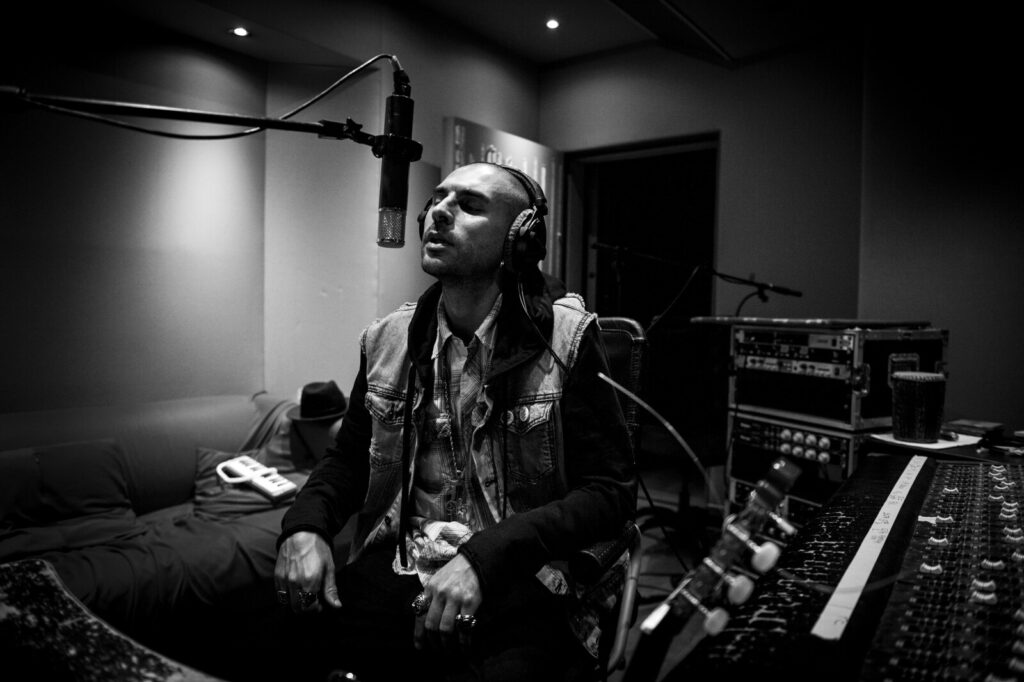
Independent musicians must rely on their own ingenuity and resourcefulness to fund their music careers.
-Songsmith Recording
Being a passionate musician is a journey to say the least. For independent musicians who navigate the music industry without the support of major labels, it’s a path of both freedom and challenges. One such challenge that often weighs heavily on their minds is the financial aspect. The financial realities for independent musicians can add up. An Independent must shoulder all of the responsibility of funding on their own. That would include music production, promotion, and career development. In this article, we’ll delve into the realities of these financial burdens. We’ll shed light on the expenses incurred by independent artists and offering insights to help them navigate this intricate landscape.
So: What are the expenses incurred being an independent artist?
Independent artists face various expenses throughout their musical journey, including equipment costs, recording and production expenses, marketing and promotion investments, performance and touring expenditures, legal fees, and distribution costs.
As an independent artist, it’s crucial to understand and prepare for these financial commitments, as they play a pivotal role in shaping your career. By gaining insight into the expenses involved and learning effective strategies for managing your finances, you can navigate the path of independence with confidence and direction.
In the following sections, we’ll embark on a comprehensive exploration of the financial landscape that independent musicians must navigate. From essential expenses to recording and production costs, from promoting and marketing music to performance and touring expenses. Along the way, we’ll also provide budgeting tips, legal considerations, and insights into the evolving digital landscape of music distribution.
Join us as we uncover the truths behind the expenses for independent musicians and equip you with the knowledge to make informed financial decisions, empowering you toward your own success.
Understanding the Financial Landscape
Being an independent musician entails much more than simply creating and sharing music Independent musicians must rely on their own ingenuity and resourcefulness to fund their music careers. This requires a great deal of self-sufficiency and entrepreneurial spirit. We recently posted an article about starting you music career with no help and no money, take a look!
The absence of major label support is a defining characteristic of the independent music industry. While major labels offer financial backing, marketing expertise, and extensive industry connections, independent artists must chart their own course. They often lack the financial safety net and promotional machinery that major labels provide. This means that independent musicians must take on the responsibility of financing their own music production, studio time, equipment, and marketing campaigns. If you decide to do some music production on your own, here is a great article with 25 music production tips you should check out!
The Freedom To Be Creative
However, this self-sufficiency can be empowering. Independent musicians have the freedom to make creative decisions without the interference of corporate agendas. They can cultivate their unique artistic vision and maintain full control over their music. This autonomy allows for greater artistic integrity and the ability to connect with their audience on a deeper, more personal level. Here is a more comprehensive explanation of the path for Independent musicians vs those whom are signed.
To thrive in the financial realities for independent musicians, you must embrace a DIY (do-it-yourself) ethos and adopt various strategies to implement that. This includes budgeting wisely, seeking alternative sources of income such as live performances and merchandise sales, as well as exploring crowdfunding platforms to engage their fanbase and secure financial support.
Despite the challenges, the independent music scene is vibrant and resilient. Independent musicians forge their own path, carve out their unique niche, and create music that resonates deeply with their audience.
In the following sections, we will delve into the specific expenses that independent artists encounter throughout their musical career. By understanding these financial obligations and exploring strategies for managing them effectively, independent musicians can thrive in the dynamic and ever-evolving music industry landscape. For more help about building your artistic brand on a budget, Use this resource!
Essential Expenses for Independent Musicians
In this section, we delve into the core expenses that independent musicians need to consider, covering aspects such as equipment, instruments, and recording software. Additionally, we explore the costs associated with setting up a home recording studio.
Guitars Drums Keyboards
One of the primary expenses for independent musicians is acquiring the necessary equipment and instruments to bring their musical vision to life. This includes instruments such as guitars, keyboards, drums, or any other instrument unique to their genre. The cost of acquiring quality instruments can vary greatly depending on the specific needs and preferences of the artist. Additionally, investing in accessories such as amplifiers, pedals, and cables further adds to the expenses.
DAWs, Audio Interfaces, Mics, Monitors, Home Studio Expenses
In the digital age, recording software and equipment play a crucial role in the music production process. Independent musicians often rely on digital audio workstations (DAWs) to record, mix, and master their music. These software programs, along with audio interfaces, microphones, and studio monitors, contribute to the overall cost of setting up a home recording studio.
Setting up a home recording studio offers independent musicians the convenience and flexibility to create music on their own terms. However, it’s important to note that the costs associated with establishing a studio can vary widely based on individual preferences and requirements. Expenses may include acoustic treatment for the room, soundproofing materials, studio furniture, and additional peripherals like headphones and cables.
Ongoing Expenses
Furthermore, ongoing expenses such as software updates or subscriptions, instrument maintenance, and studio equipment upgrades should also be considered as part of the overall budget. It’s crucial for independent musicians to allocate funds for these expenses to ensure the longevity and quality of their music production capabilities.
While these core expenses may seem substantial, they can be navigated by planning and budgeting effectively. Prioritizing essential equipment and gradually expanding their setup over time allows artists to manage their expenses while maintaining the ability to produce professional-quality music.
Recording and Production Costs

Whether an artist chooses to invest in professional studio time or develop a DIY approach, the focus remains on capturing their music well and delivering a high-quality listening experience to their audience.
Studio Time and Facilities
Producing professional-quality music recordings involves various expenses, and one significant aspect is studio time. Renting a professional recording studio can incur costs, as these spaces offer state-of-the-art equipment, soundproof rooms, and specialized acoustics. The hourly or daily rates vary depending on the studio’s location and reputation. Independent musicians often allocate a portion of their budget to secure the necessary studio time to bring their musical visions to life.
Hiring Engineers or Producers
Another essential consideration is hiring skilled engineers or producers to help capture and enhance the artistic vision. These professionals possess technical expertise, ensuring optimal sound quality, and assisting with the overall production process. The cost of hiring engineers or producers varies based on their experience and reputation. Collaborating with the right professionals can greatly enhance the recording quality and bring out the best in an artist’s music.
Mixing and Mastering
After the recording process, the music undergoes the critical stages of mixing and mastering. Mixing involves adjusting the levels, EQ, and effects of individual tracks to create a balanced and cohesive sound. Mastering focuses on finalizing the overall sound, optimizing it for various playback systems, and ensuring consistency across tracks. Independent musicians often collaborate with professional mixing and mastering engineers to achieve a polished, radio-ready sound. The costs for these services depend on the complexity of the project and the expertise of the engineers involved. If you are mixing yourself, we recently posted an article with 8 steps for mixing, Have a read!
Cost-Saving Benefits of Home Recording
While traditional recording studios offer unparalleled resources, advancements in technology have made home recording more accessible and cost-effective. Setting up a home studio allows musicians to work at their convenience and save on recurring studio rental fees. Home recording setups can range from a basic bedroom studio to more sophisticated setups with dedicated rooms and high-quality equipment. With the right gear and knowledge, independent musicians can achieve professional results from the comfort of their own spaces, reducing long-term production costs.
To get great vocals you might think you’ll need to build a a vocal booth, here is great article about that. You should check it out.
Embracing DIY Production
Many independent musicians embrace the do-it-yourself (DIY) approach to recording and production, which can be both cost-saving and empowering. Learning recording techniques, investing in affordable yet capable equipment, and acquiring production skills enable artists to take full creative control over their music. DIY production offers the flexibility to experiment, refine ideas, and develop a unique sonic identity without the time constraints and financial burden of professional studios.
After you have saved and purchased all of your own gear, recorded and paid for your mix and master, you can graduate to yet more expenses. From here on, you are going to be dealing with all of the costs to register, secure, and promote your intellectual property… your song.
Breakdown of Promoting and Marketing Expenses
By understanding the financial realities for independent musicians related to promoting and marketing music, independent artists can better allocate their resources. Each aspect, from album artwork to digital marketing and offline promotion, plays a crucial role in establishing a strong presence and attracting an engaged fanbase.
The Importance of Promotion and Marketing
Promotion and marketing are vital for independent artists to gain visibility and reach their target audience. Allocating a budget for these activities is crucial to effectively promote their music and build a fanbase. In this section, we break down the expenses related to promoting and marketing music for independent artists.
Album Artwork, Photography, and Graphic Design
Creating a visually appealing brand identity is essential for attracting attention and making a memorable impression. Expenses related to album artwork, photography, and graphic design are important investments. Collaborating with talented designers and photographers, artists can create captivating album covers, promotional materials, and online graphics. These expenses ensure a professional visual presentation that resonates with listeners.
You might be able to curb some of those graphic design, album cover expenses after you’ve read this article recommending some DIY apps for doing just that!
Digital Marketing Strategies
Digital marketing opens up numerous opportunities for independent artists to reach a broader audience. It involves utilizing online platforms, social media channels, and digital advertising. While some digital marketing techniques can be cost-effective or even free, allocating a portion of the budget to sponsored posts, online advertisements, and search engine optimization (SEO) services can boost visibility and maximize reach.
Social Media Promotion and Advertising
Social media platforms provide a powerful way for artists to connect with fans and promote their music. While organic reach is possible, investing in social media advertising can significantly expand an artist’s reach. Allocating a budget for sponsored posts or targeted ads on platforms like Facebook, Instagram, or YouTube can help increase engagement and attract new followers.
Offline Promotion and Performance Expenses
Beyond digital marketing, offline promotion and live performances also incur expenses. These can include costs for printing physical merchandise, such as CDs, vinyl records, or promotional materials like posters and flyers. Additionally, expenses related to booking venues, transportation, and accommodation for live performances should be considered when budgeting for marketing and promotion.
Budgeting wisely and strategically investing in promotion and marketing efforts will help independent musicians make the most of their financial resources. It will do this while allowing them to expand their reach and growing their music careers. We recently posted an article about hiring promotional help on a budget that I think should help. Have a look!
Performance and Touring Expenses

Embarking on live performances and touring is certainly exciting, but it also comes with financial considerations such as rehearsal space, equipment transportation, and venue fees. To offset these expenses directly we will highlight potential income streams from ticket sales and merchandise.
The Financial Impact of Live Performances and Touring
Live performances and touring are key avenues for independent musicians to connect with their audience and showcase their talent. However, it’s important to recognize that these ventures come with financial implications. Artists must budget accordingly to ensure a smooth and successful experience on the road.
Rehearsal Space and Equipment Transportation
Before hitting the stage, artists need a dedicated space for rehearsals to fine-tune their performances. Renting a rehearsal studio or securing a practice space can incur costs. Additionally, transporting equipment to venues is an essential consideration. Whether it’s guitars, drums, keyboards, or sound systems, the logistics and expenses of transporting and maintaining instruments and equipment should be factored into the budget.
Venue Fees and Production Costs
Securing performance venues involves various expenses. Independent musicians may need to pay fees to book venues or to buy on to tours. Additionally, production costs such as lighting, sound engineering, and stage setup should be considered. These expenses contribute to creating a captivating live experience for the audience. They also enhance the overall quality of the performance.
Income Streams from Ticket Sales and Merchandise
Live performances and touring also present opportunities for independent musicians to generate income. Ticket sales form a significant part of the revenue stream. Setting reasonable prices that reflect the value of the performance is essential. Offering merchandise, such as T-shirts, CDs, vinyl records, or other branded items, can also contribute to the income. Merchandise sales not only generate revenue but also serve as tangible mementos for fans to support and remember their favorite artists.
Maximizing Opportunities and Financial Planning
To make the most of live performances and touring, independent musicians should explore additional opportunities to supplement their income. This can include securing sponsorship or endorsement deals. It can also entail partnering with local businesses for promotional collaborations. It could even mean leveraging online platforms to live-stream performances and engage with a wider audience. Smart financial planning, budgeting for contingencies, and exploring multiple income streams can help artists sustain their touring efforts while minimizing financial stress.
By understanding the financial implications of live performances and touring, independent musicians can plan and budget effectively. Balancing expenses such as rehearsal space, equipment transportation, and venue fees while leveraging potential income streams from ticket sales and merchandise allows artists to embark on successful and rewarding tours, connecting with fans and sharing their passion for music on stage.
Legal and Licensing Considerations
Navigating the legal and licensing aspects of the music industry is an important consideration for independent artists. In this section, we explore the legal fees and licensing costs associated with being an independent artist. We cover crucial aspects such as copyright registration and music licensing for sync placements. For a copyright registration ‘how to’… Read This!
Legal Fees and Consultation
Independent artists may encounter legal fees when seeking professional advice or consultation regarding their music career. It’s wise to consult with a music attorney who specializes in the industry to ensure compliance with copyright laws, contract negotiations, and other legal matters. While legal fees can vary, investing in professional guidance can provide artists with the necessary knowledge and protection for their creative work.
Copyright Registration
Copyright registration is an essential step for independent musicians to protect their original compositions. Registering their work with the appropriate copyright office provides legal evidence of ownership and can aid in potential legal disputes. While copyright registration fees differ depending on the jurisdiction, it is a worthwhile investment to safeguard their intellectual property and maintain control over their music. If you need more info, about the cost and fees of Copyright Registration, here is a great Article that will help. Have a look!
Music Licensing for Sync Placements
Sync licensing offers independent artists the opportunity to have their music featured in various media, including films, TV shows, commercials, and video games. Licensing fees can vary depending on the scope of usage and the platform. Artists may choose to work with a sync licensing agency or handle the licensing process themselves. It’s important to research and understand the terms and conditions of each licensing agreement to ensure fair compensation and protect their rights as independent artists.
Performance Rights Organizations (PROs)
Performance Rights Organizations (PROs) play a crucial role in collecting and distributing performance royalties to artists. Registering with a PRO allows independent musicians to receive royalties whenever their music is performed publicly, such as on radio, TV, or live performances. While there may be membership fees or administration fees associated with PROs, these organizations help streamline the royalty collection process and ensure that artists are fairly compensated for their work.
By understanding the legal and licensing considerations, independent artists can navigate the intricacies of the music industry with confidence. Investing in legal advice, copyright registration, and music licensing for sync placements can protect their intellectual property, provide financial opportunities, and help them make informed decisions throughout their music career.
Online Distribution and Streaming Costs

The digital era has revolutionized the way music is distributed. It has allowed for independent artists to reach a global audience through online platforms. In this section, we explore the expenses related to distributing music online through streaming platforms. We’ll discuss distribution services, aggregator fees, and the royalty collection processes.
Distribution Services
Independent artists have access to a range of distribution services. These services help them deliver their music to various online platforms such as Spotify, Apple Music, and Amazon Music. These services handle the technical aspects of distribution, ensuring that artists’ music reaches a wide audience. While some distribution services offer free options, paid services often provide additional benefits and wider reach.
Aggregator Fees
Aggregators are intermediaries that facilitate the distribution process by delivering music to multiple online platforms on behalf of artists. Aggregators may charge a one-time fee or deduct a percentage of the revenue generated from streaming and downloads. The fees vary depending on the aggregator and the level of service provided. Artists should consider the benefits and costs associated with different aggregators when choosing the most suitable option for their music.
Royalty Collection
Streaming platforms collect royalties on behalf of artists and distribute them based on the number of streams their music receives. However, there may be administrative fees or minimum payment thresholds applied by the streaming platforms. Artists should familiarize themselves with the royalty collection process. This should include the payment schedules and any associated costs, to ensure transparency and fair compensation for their music.
Maximizing Online Distribution
While there are costs associated with online distribution, it presents a vast opportunity for independent artists. Especially when it comes to reaching a global audience and generating revenue. To maximize the benefits of online distribution, artists should strategize their release plans and engage with their fanbase through social media and online platforms. Additionally they should explore revenue streams such as playlist placements, sync licensing, and merchandise sales.
By understanding the expenses related to online distribution and streaming, independent artists can make informed decisions about distribution services, choose aggregators that align with their goals, and navigate the royalty collection processes. Embracing online platforms allows artists to showcase their music to a worldwide audience. It also allows them to leverage the digital landscape to expand their reach and connect with fans in new and exciting ways.
Miscellaneous Expenses and Budgeting Tips
While we’ve covered the core expenses, it’s important for independent artists to be aware of other potential costs that may arise. These can include expenses for marketing materials such as business cards, posters, or press kits. Website maintenance, domain fees, and online promotion may also incur costs. Don’t forget about travel expenses for gigs or music conferences, as well as ongoing instrument maintenance and repairs. By being mindful of these potential expenses, artists can plan and budget accordingly.
Budgeting Tips and Strategies
Effective budgeting is essential for the financial sustainability of independent musicians. Start by creating a detailed budget that outlines all income and expenses. Set aside a portion of your earnings for future projects, emergencies, and savings. Prioritize essential expenses, such as music production, promotion, and live performances, while being mindful of unnecessary expenditures. Look for opportunities to collaborate with other artists or share costs for equipment and studio rentals. Explore grants, sponsorships, or crowdfunding platforms to support your artistic endeavors. And remember, networking with other musicians and industry professionals can provide valuable insights and guidance for managing and prioritizing expenses.
By being proactive in managing finances and implementing smart budgeting strategies, independent musicians can navigate the financial landscape with confidence. With careful planning and a focus on long-term sustainability, artists can pursue their musical passions while maintaining a healthy financial foundation.
Conclusion
As we come to the end of our discussion about the financial realities of being an independent artist, it’s important to remember that while the path may be challenging, it is also filled with endless possibilities and rewards. The financial landscape may present obstacles, but with creativity, resourcefulness, and a positive mindset, those obstacles can be traversed.
Embrace the spirit of entrepreneurship, tap into your ingenuity, and find joy in the process of creating music. Remember that success in music is not solely defined by monetary gain, but also by the impact and fulfillment it brings you.
Stay resilient, continuously adapt, and seek opportunities for growth. Surround yourself with a supportive community of fellow musicians, mentors, and fans who believe in your talent and vision.
Celebrate every milestone along the way. Whether it’s the completion of a new recording, a successful performance, or connecting with fans who resonate with your music, embrace the journey. Never forget that the financial challenges you face are just stepping stones on your path. Good luck with every effort. we’re routing for you.
One last thing, don’t forget that a lot of these expenses can be deducted from your taxes. Here is a great article from another platform that can give you some insight to how and file your taxes as a musician most effectively!
